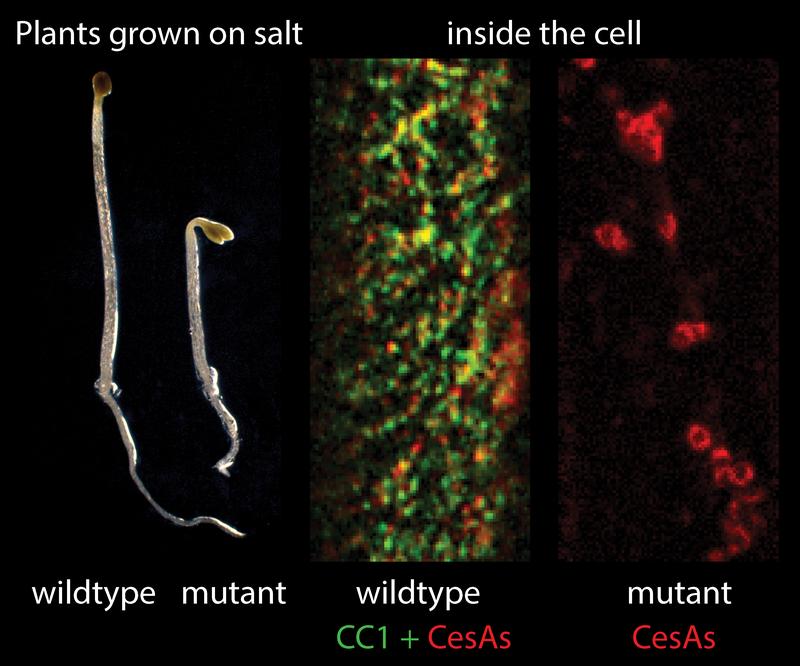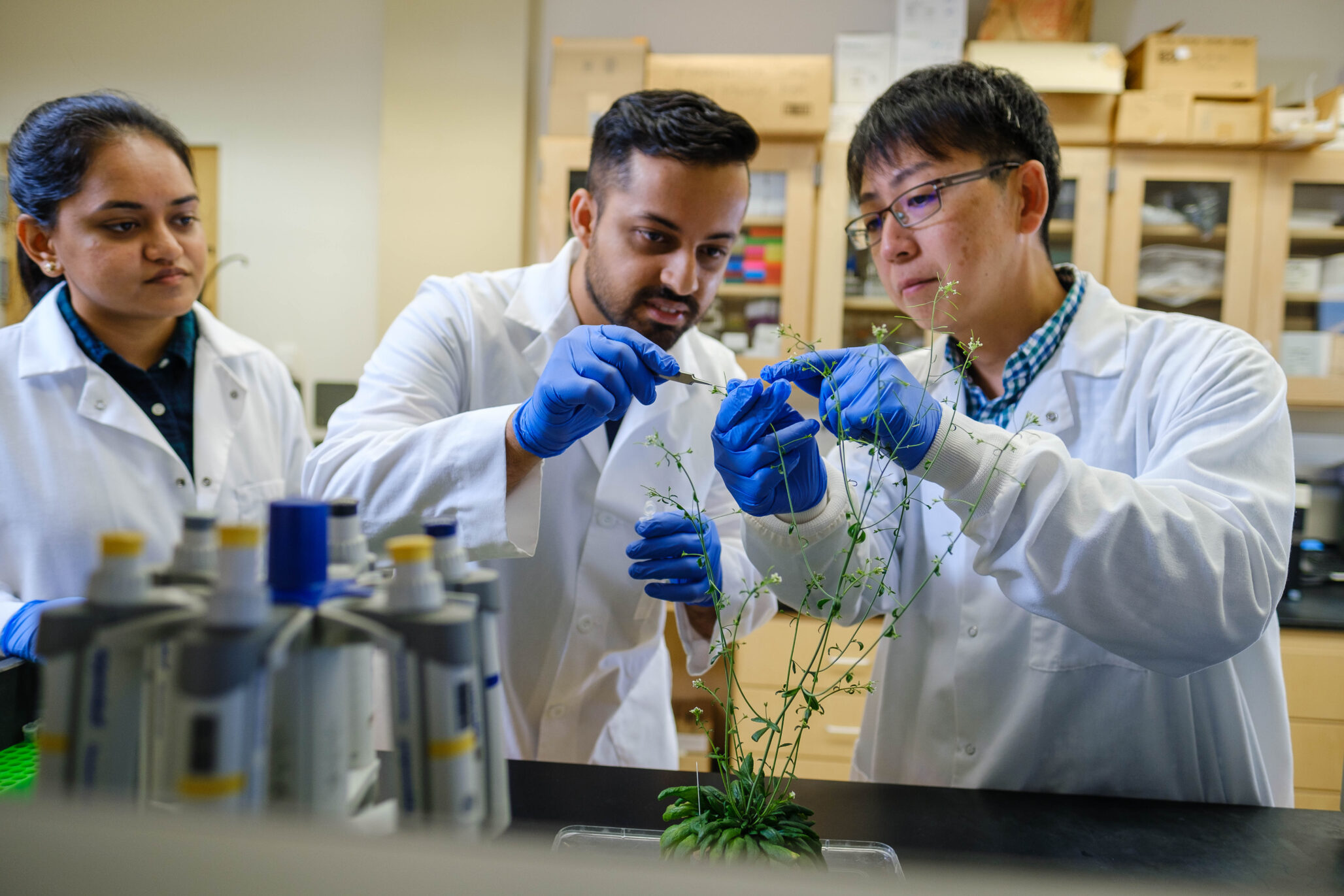German researchers identify a protein family that helps plants to grow in salt, and outlined a mechanism for how these proteins aid the plants to produce their biomass under salt stress conditions.
The research at the Max Planck Institute of Molecular Plant Physiology revealed that a previously unknown family of proteins supports the cellulose synthase machinery under salt stress conditions, and was named “Companions of Cellulose synthase (CC).
“We show that these proteins, which we called CC proteins, are part of the cellulose synthase complex during cellulose synthesis,” says Staffan Persson, who led the research group.
The group’s discovery could promote future generation of salt-tolerant crop plants. A major global agricultural challenge involves an increase in food production to sustain a growing population. By 2050 it is estimated that we need to increase our production of food with 70 percent to feed an additional 2.3 billion people. Salinity is a major limiting factor for this goal as more than 50 percent of the arable land may be salt afflicted by the year 2050.
More information is available here: https://idw-online.de/en/news636912












